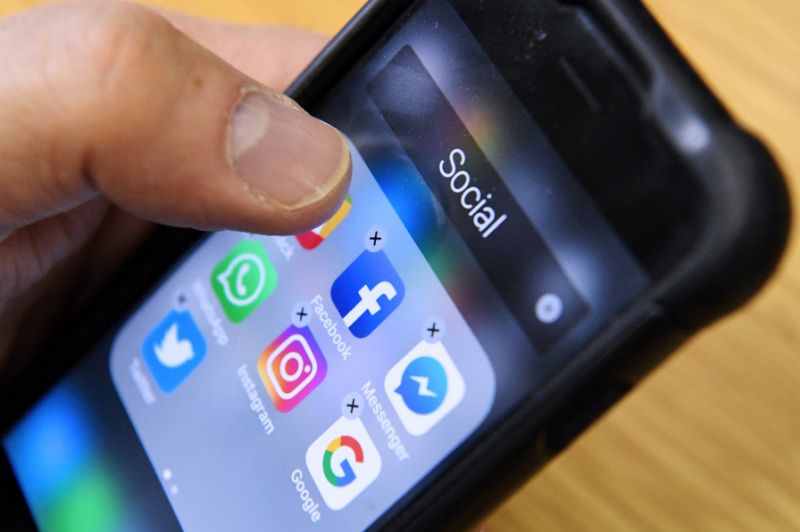
Europol, the EU's law enforcement agency, reported “worrying” increase in online child abuse amid the global health crisis and warned that children could be more exposed if they use “less secure online educational applications”. This surge in paedophile activities was identified by authorities from at least 27 countries.
The agency’s executive director Catherine De Bolle said that sexual abusers were trying to “exploit children’s growing exposure to the web as the latter turned to online lessons” due to the restrictions, Reuters reported.
In the United States, the National Center for Missing & Exploited Children (NCMEC) said it had recorded a 106% increase in reports of suspected child sexual exploitation, as compared to 2019.
Similarly, at least 8.8 million attempts by internet users to access videos and images of children suffering sexual abuse were blocked and filtered by Internet Watch Foundation in the UK during the month of April alone, as reported by The Guardian.
With technology and digital media becoming an integral part of children’s lives even in Pakistan, voices are being raised to make the digital experience safer for them.
Digital rights activist and lawyer Nighat Dad, while speaking to The Express Tribune, stressed the importance of understanding the threats that are emerging with the new ways of learning. She underscored that parents and schools need to work together to create a “safe and secure space” for children to talk about their experiences online.
“In our society, there is often a lot of shame associated with talking about instances of harassment - cyber or in real life. Parents and schools need to be proactive in letting children know that they can approach them if something of that sort happens. This needs to be practiced with constant reiteration of the fact,” Dad said.
She added that pre-emptive measures should also be encouraged to prevent online predators from luring or sexually exploiting children.
“Children need to be taught how to behave online and recognise the kind of attention they might be getting. Especially for younger kids, boundaries need to be set up, however, rather than just imposing them, parents need to include their children in the process,” Dad suggested, insisting that parents had to lead by example to show “responsible online behaviour”.
Digital security
In light of increasing internet usage and online abuse cases, authorities worldwide have pondered mechanisms for protecting data. Anti-virus software, biometrics and web services have been launched to secure devices, accounts and passwords. But in the case of children — who despite age restrictions are flocking to social media —things can become complicated if they are lonely, depressed or confused and are not provided necessary guidelines to protect themselves from online predators, experts say. They suggest using safe searches, implementing privacy settings and covering webcams when not in use to avoid potential threats.
Dad underlined the necessity of having digital security in online spaces to prevent harm but stressed that the process should be democratic to not jeopardise the emotional and mental well-being of children.
“Digital security is essential, now and always, but rather than imposing certain measures on younger children, it is important to involve them in the process, which can in turn give them a sense of ownership and responsibility,” she explained, adding that there were great online resources that make digital security fun for youngsters.
She went on to add that this will make the strategy of implementing digital security not only effective but will also make security appear critical to them, rather than being an impediment to their online experience.
In this regard, Dad’s Digital Rights Foundation —a research and advocacy NGO — through its Cyber Harassment Helpline, is now taking cases that deal with online child abuse on seeing a rise in cybercrime affecting juveniles.
Under-age social media use
Digital experts also point out an increase in the number of under-age children on social media with ease of access amid growing technological influence.
Speaking to The Express Tribune, Digital Rights Lead at Media Matters for Democracy, Hija Kamran, highlighted the importance of considering children’s “sufficient” presence on social media and the unchecked risk that can harm them.
“Social media companies like Facebook allow kids as young as 13 years of age to join their platform, while offering very little protection against the prevalent abuse,” she noted, adding that Facebook remains one of the least safe places on the internet where children are constantly targeted by sex offenders, criminals and hackers, in the guise of their friends, or by befriending them.
Kamran identified digital illiteracy among the masses and lamented that parents do not have much control when harm is already done or when the child is being blackmailed by the perpetrator.
“There are countless incel groups on Facebook and Instagram that objectify underage people, and have even gone on to romanticising rape of underage kids,” she maintained, pointing out to the perils of social media. “Facebook has offered almost no support in countering this violence despite multiple reports by the users who witnessed these conversations.”
Cybercrime laws in Pakistan
Pakistan has enacted several laws to combat technology-based crimes with strict penalties for offences. Hacking, identity theft, cyber bullying, cyber stalking, financial fraud and digital piracy are recognised as serious, punishable crimes by the National Response Centre for Cyber Crimes. The Prevention of Electronic Crimes Act (PECA) 2016 also criminalises violence against minors and sexual exploitation of children on online platforms, granting punishment of up to seven years and fine up to 5 million rupees or both to perpetrators.
Kamran, however, believes that reporting and implementation mechanism in this regard has been very slow.
“This [the delay in response] is essentially providing free exit to perpetrators and a lifelong trauma to children,” she bemoaned. “Law enforcement authorities play a pivotal role in providing safety through timely action and with the situation becoming stressful due to Covid-19, it becomes even more necessary for them and parents to ensure safety of children and provide them the support they need.”
Kamran elaborated the need to create awareness among children about online harm while at the same time not restricting their access to the internet. “Children have equal right to privacy and safety,” she maintained, reiterating that social media platforms should proactively moderate violent content, improve their reporting mechanism, and ensure a safe space for young children and adults alike.
Much in agreement with Kamran, Dad said it was crucial for social media giants like Facebook, Twitter, Instagram, YouTube, TikTok and others to ensure a secure digital experience for all and added that the people needed to hold them accountable either through advocacy or open communication over this responsibility.
Mental health
With cyberbullying and abuse severely impacting the overall well-being of children, mental health experts urge parents to look out for red flags in their kids’ behaviours. They encourage open conversations, trust-building and better communication to address problems.
“It is critically important for parents to communicate with children regularly, in a friendly manner and ask them about their activities online. The child must confide in their parents, find a support system and not fear them,” psychologist and expert in Cognitive Behavioural Therapy Tipu Pervaiz told The Express Tribune. “If a child is distressed, withdrawn or behaves differently, there could be something bothering him/her. This calls for parents’ intervention.”
Pervaiz added that as most children stay at homes due to schools’ closure, the seclusion can cause loneliness, anxiety and social disorders, and can make them more vulnerable to fall prey to cyber criminals.
“Reassure your children that they can come to you if anything is bothering them or if someone is being nasty or making them feel uncomfortable in any way, shape or form,” he stressed.
Cruel numbers
Meanwhile, Sahil - a child protection NGO - revealed that in the year 2019, out of the reported cases, 70 were of child sexual abuse and pornography and out of these 50 (71%) occurred with boys, 20 (29%) occurred with girls while in 41 (59%) cases gangs were involved.
Speaking to The Express Tribune, Executive Director of Sahil, Manizeh Bano suggested measures to protect juveniles from cybercrime.
“Safety messages can appear when users, especially children, are on chat or online and the government, in this regard, can request all digital and social media platforms to ensure their [messages] circulation,” she said, elaborating that these messages can carry instructions like “never share personal information, including pictures online and never physically meet the person you are chatting with”.
She added that Sahil will also share these messages on its social media in order to create more awareness and is closely monitoring cases, especially related to child pornography.

1731916090-0/sabrina-(3)1731916090-0-165x106.webp)


1732020599-0/BeFunky-collage-(73)1732020599-0-165x106.webp)



1731838555-0/BeFunk_§_]__-(5)1731838555-0.jpg)








COMMENTS
Comments are moderated and generally will be posted if they are on-topic and not abusive.
For more information, please see our Comments FAQ